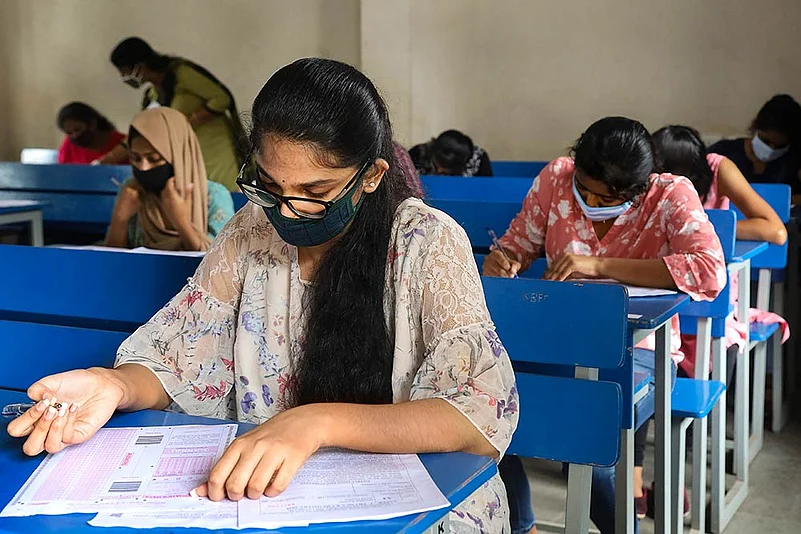Samkalp an institute closely linked to the Rashtriya Swayamsevak Sangh (RSS), has been training and guiding IAS aspirants for nearly three decades with an enviable success rate. While other institutes take out boastful advertisements speckled with mugshots of its successful candidates, Samkalp keeps a low-profile; it has never advertised its achievements.
Running out of a nondescript centre at Udaseen Ashram in Delhi’s Paharganj area, Samkalp’s Interview Guidance Programme (IGP) has become a sought after course over the years. Not only are tuition fees more reasonable than most other coaching institutes, it is enviably successful too.
Samkalp’s head-office and three branches are in Delhi; they have chapters in other cities and smaller towns, including Chandigarh, Guwahati, Chennai, Agra, Mathura, Meerut, Bhiwani, Kanpur, Roorkie, Jaipur, Bhilai, Ludhiana and Vadodara to cater to an increasing number of aspirants. While the institute and its branches offer coaching for prelims and main examinations, it calculates its success rate based on the final interview.
ALSO READ: Bharat Cadre
On an average, 60 per cent of candidates who make it to the IAS have received coaching for the crucial final leg of the examination at the IGP. “Of the 829 total vacancies in the IAS, 480 have taken Samkalp’s interview programme this year. Among the top 10 candidates at the all-India level, ranks 2,3,6,9 and 10 were coached here. And so were those ranked 11, 12 and 16,” says Kanhaiya Lal, the organising secretary of Samkalp. Giving more details, he says 19 of the top 30 and 66 out of top 100 took coaching for the interview with them. Success rate at the IGP was 61.3 per cent last year; in 2018 it was 65.5 per cent.
In the marking scheme of the examinations, though, the final interview accounts for only 275 out of a total 2025 marks (1,750 are for all papers in the final examinations). However, it makes the vital difference to the ranking. The interview mainly evaluates a candidate’s personality and her ability to handle stress and difficult situations.
Joint general secretary of RSS Krishna Gopal has been addressing successful candidates at the felicitation function held after declarations of results every year since 2016, the batch that included Tina Dabi and Athar Amir, ranking 1st and 2nd. “Yes, he comes every year but as an educationist, not as a RSS functionary,” Lal is quick to add. He says several retired bureaucrats are associated with the institute and are part of the panel that coaches the candidates.
In addition to bureaucrats, the institute has on its list of mentors Krishna Gopal, RSS leader Madan Das Devi, industrialist J.P. Agarwal and former governors Jagmohan and Vijai Kapoor.
ALSO READ: Babu Got Back
Set-up in 1986, Samkalp’s founding members include RSS leader Santosh Taneja and former Mizoram governor A.R. Kohli. “Samkalp was set up with the intention of transforming the bureaucracy, which was full of ‘jholawallahs’, to a more socially committed and nationally inspired one,” says a Sangh functionary, adding that they have always supported the institute.
With each state and cadre having civil servants who owe their success to Samkalp, the RSS hopes that in the next 10 years, they will have a bureaucracy that will genuinely contribute to nation-building with true Indian values.
Lal says that Samkalp has helped aspirants from the disadvantaged and economically weaker sections to join the civil services—its fee structure is the lowest. They even have a scholarship programme which offers free training. “This is the only way to ensure the participation of millions of Indians in the developmental process of the nation. It is time that the civil services were not limited to elites or those from JNU,” he adds.
ALSO READ
Showkat Parray, The Humble Vizir
‘Our Education Must Be Culturally Rooted And Suit 21st Century Needs’


























